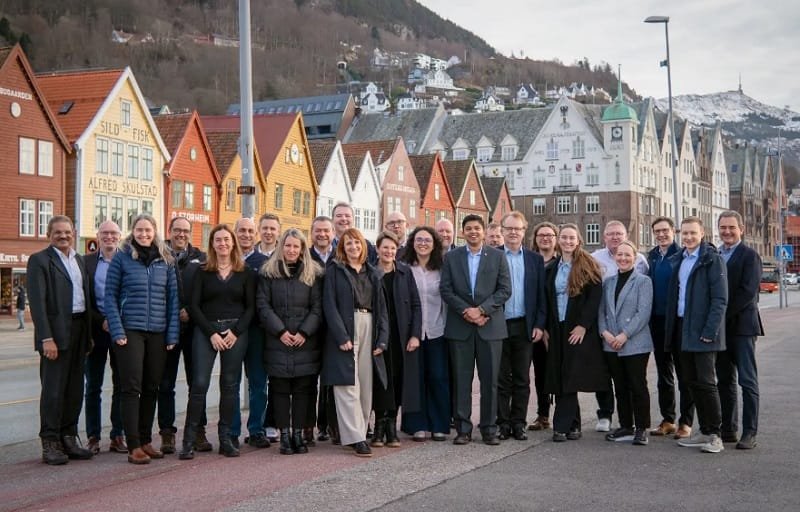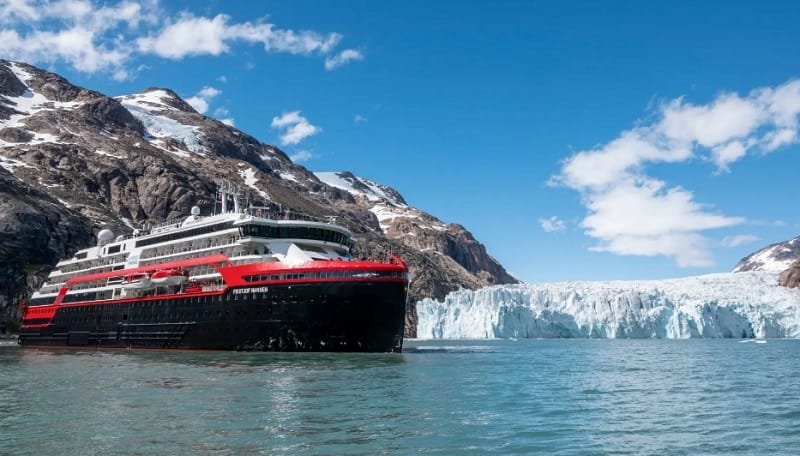Bergen Engines, a leading manufacturer of medium-speed liquid and gas-fueled engines, has announced its participation in the EU-funded LOWNOISER project, a groundbreaking initiative aimed at reducing underwater noise pollution caused by maritime traffic. In collaboration with Maritime CleanTech and a consortium of international partners, the company is developing innovative noise reduction technologies to mitigate the harmful impact of ship noise on marine ecosystems while contributing to the advancement of regulatory standards for the industry.
Table of Contents
Addressing a Growing Environmental Challenge
Underwater noise pollution is an increasingly critical issue in the maritime sector, as it disrupts the natural behaviors of marine species, including communication, navigation, and reproduction. The European Commission’s Marine Strategy Framework Directive has identified underwater radiated noise from ships as a significant environmental threat, calling for at least 80% of target species’ habitats to remain unaffected by biologically harmful noise levels.
Studies have demonstrated that excessive noise from ships negatively impacts species such as cod, cuttlefish, and marine mammals. However, large-scale, effective solutions that work in real-world maritime conditions have been lacking. The LOWNOISER consortium is stepping up to address this issue by implementing advanced noise-mitigation strategies and environmentally friendly technologies that could help create quieter and healthier oceans.
Bergen Engines’ Role in the LOWNOISER Project
As a key partner in the LOWNOISER project, Bergen Engines is committed to developing and testing cutting-edge solutions to minimize structural noise and vibrations generated by propulsion and auxiliary engines. The company is focusing on upgrading engine mounting systems to significantly reduce the transmission of noise from vessels to the marine environment.
Bergen Engines is also testing new technologies designed to improve the efficiency of engine mounts, ensuring quieter operations without compromising performance. These efforts align with the company’s broader commitment to sustainability, as it continues to explore alternative fuels and energy systems to support the maritime industry’s transition to low-carbon and zero-emission operations.
“Our engineers are dedicated to researching and implementing solutions that enhance vessel efficiency while minimizing environmental impact. The LOWNOISER project represents an important step in addressing underwater noise pollution, and we are proud to contribute our expertise to this crucial initiative,” Bergen Engines stated.

Innovative Technologies for Quieter Oceans
The LOWNOISER project will run for four years and aims to develop practical and scalable solutions that can be applied to both newbuilds and existing vessels. Among the advanced technologies being explored are:
- Air Lubrication Systems (ALS): Creating a layer of bubbles beneath the ship to reduce drag and noise while improving fuel efficiency.
- Low-Noise Bevel Gears and Engine Mounts: Designed to minimize vibrations and structural noise emissions from engines and propellers.
- Onboard Monitoring Systems: Real-time tracking and adjustment of ship noise emissions.
- Distributed Acoustic Sensing (DAS): A fiber-optic-based monitoring system for assessing underwater noise levels without disturbing marine life.
To validate these technologies, the project will include five full-scale demonstrators, such as HX Hurtigruten Expeditions’ Roald Amundsen cruise vessel and Ibaizabal’s Montesperanza oil tanker. These vessels will undergo extensive testing to measure the effectiveness of noise reduction strategies and their benefits for marine species, particularly in improving communication spaces for whales.
Shaping Industry Standards for a Sustainable Future
Beyond technological advancements, LOWNOISER aims to establish new regulatory frameworks and guidelines for underwater noise mitigation. The project will provide shipbuilders, equipment suppliers, and regulatory bodies with essential tools to adopt sustainable practices and meet evolving environmental benchmarks.
Norwegian Minister of Climate and Environment, Andreas Bjelland Eriksen, emphasized the significance of this initiative:
“Norway is proud to be a leading player in the development of green solutions for the shipping industry. Cooperation with the EU is important in this regard, and the support they provide for Norwegian climate and environmental projects creates good market opportunities for Norwegian companies while recognizing the expertise of the Norwegian maritime industry.”
The LOWNOISER project also seeks to engage key stakeholders across the shipping sector, raising awareness of the impact of underwater noise pollution and promoting viable solutions for a quieter maritime industry. By combining state-of-the-art research with industry-wide collaboration, the initiative is poised to make a lasting impact on marine sustainability.
Project Partners
The LOWNOISER project brings together a diverse group of industry leaders, research institutions, and regulatory bodies, including:
- Maritime CleanTech (Norway)
- Ibaizabal Tankers (Spain)
- VTT Technical Research Centre of Finland
- Alfa Laval Rotterdam (Netherlands)
- SINTEF Ocean (Norway)
- Vibrol (Finland)
- Técnicas Y Servicios De Ingeniería (Spain)
- Bergen Engines (Norway)
- Kongsberg Maritime (Norway)
- Istituto Nazionale Di Fisica Nucleare (Italy)
- Lloyd’s Register (UK)
- Consiglio Nazionale delle Ricerche (Italy)
- Universitat Politècnica de Catalunya (Spain)
- Bureau Veritas (Portugal)
Associated Partner: HX Hurtigruten Expeditions (Norway)
The project is supported by the European Union’s Horizon program under grant agreement No. 101192302.
About Bergen Engines
Bergen Engines is a leading manufacturer of medium-speed liquid and gas-fueled engines and generator sets, catering to land-based, commercial marine, and naval applications. With a history of engineering excellence dating back to 1855, the company has built over 7,500 engines, nearly half of which remain in operation today. Formerly a division of Rolls-Royce, Bergen Engines became part of the privately owned British engineering group Langley Holdings plc on December 31, 2021. The company continues to drive innovation in sustainable maritime technologies, reinforcing its reputation for quality, reliability, and environmental responsibility.
Source Bergen Engines

